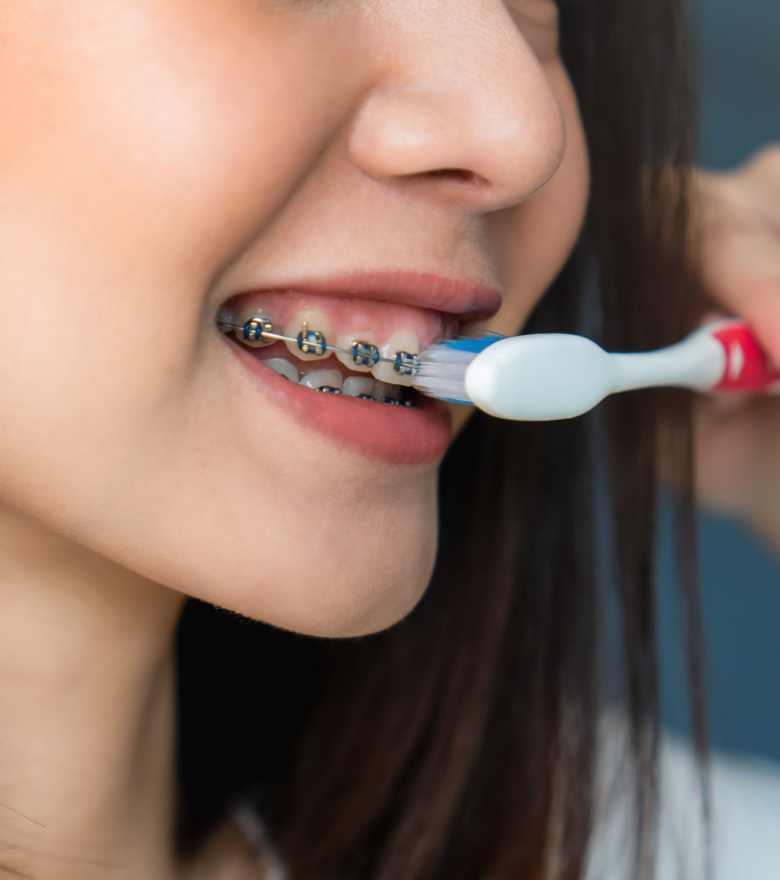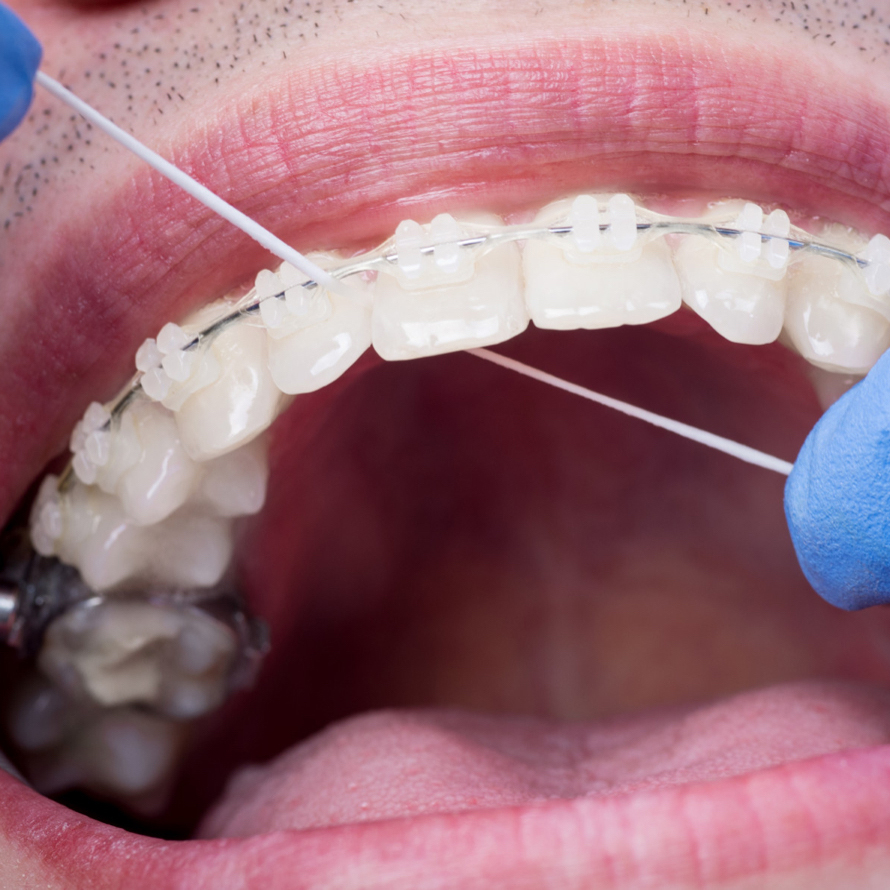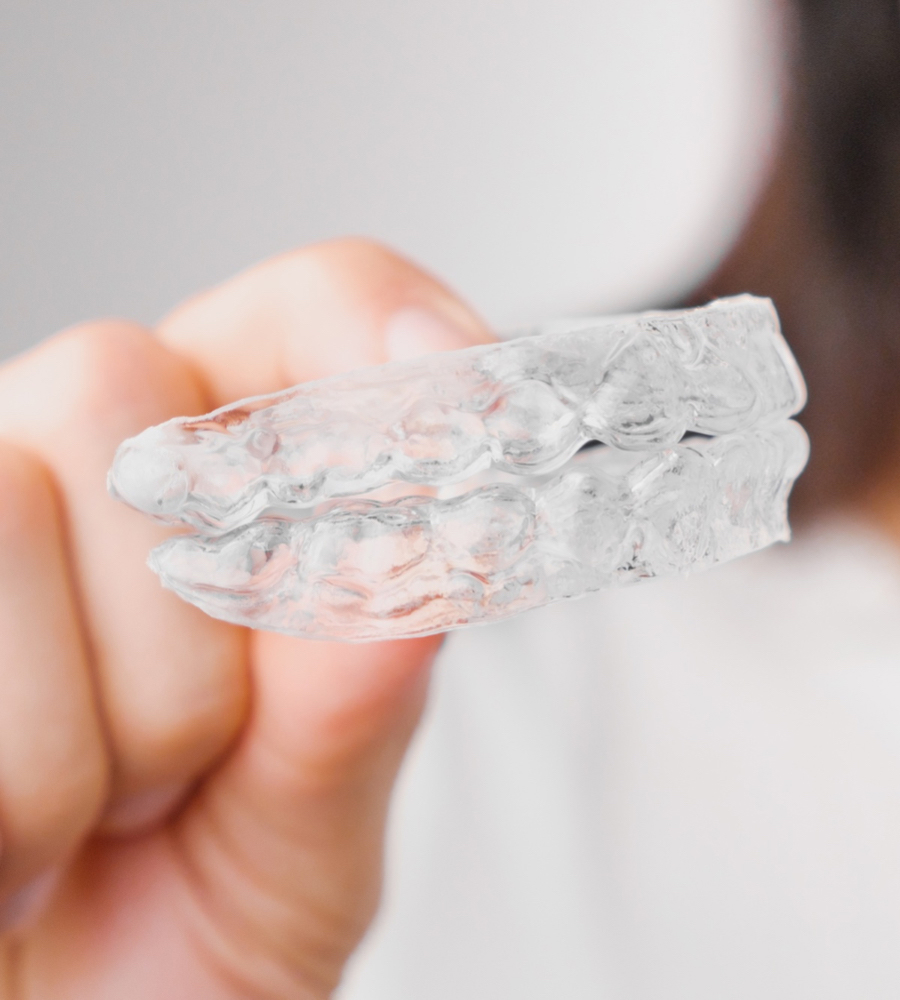
Dental Hygiene for Brace Wearers
Most people choose to have braces so they can have beautiful, straight white teeth. So it’s highly probable they already think that brushing and flossing and other aspects of oral hygiene are important. However, what they might not realise is that people undergoing orthodontic treatment need to be even more dedicated to good oral hygiene.
Because thorough oral hygiene is more difficult with braces, braces wearers are more prone to issues such as gingivitis, tartar and demineralization than non-brace wearers. These types of dental problems are unpleasant enough in their own right, but if left untreated they can turn into more serious issues. Also, they can prolong the time spent wearing braces. In really severe cases of gum disease or other types of oral health problems, the orthodontist may have to temporarily remove the braces and wait for the gums and mouth to heal before continuing treatment.
Dr Moira Wong gives these words of advice
“Focusing on oral hygiene and understanding the dental issues you should watch out for is extremely important during orthodontic treatment. Braces can trap food contributing to plaque formation. And if the plaque is not carefully removed from teeth and from around the braces, then patients run the risk of developing gum disease, dental decay and bad breath.”
!
It’s important to remove the plaque thoroughly and often. Then, when your braces come off, the surfaces of your teeth underneath the braces will be strong, healthy and look good.
Here are a few tips From Dr Wong that can help:

Brushing
Brush your teeth and braces at least three times a day. It is best to brush after meals to make sure there’s no food trapped in or around braces. Pay special attention to the areas between your brackets and your gums.
Some companies make toothbrushes especially for people with braces. Known as bi-level brushes, they have longer bristles on the edges and shorter ones in the middle. This type of brush allows you to clean the area above and below the brackets and the brackets as well.
If you have an electric toothbrush, it’s safe to use it on your braces. However, you need to be careful not to hit the plastic back of the brush against the brackets on your braces because it can damage them. Also, if it has variable power controls, do not use it on the highest setting as that can break or loosen braces.

Floss at least once a day
It can seem difficult at first to floss while you have braces, but it is important to get this right. Special flossing products can help you get into the space between the wires and your gumline.
When your braces are first fitted you will be given detailed advice on brushing and flossing techniques with braces by one of our specialists

Caring for your retainer
If you have a retainer or other removable orthodontic appliance, it needs to be cleaned regularly. It spends a lot of time in your mouth!
Brush the retainer daily with a soft toothbrush and some toothpaste. This is especially important for the side that is in contact with the roof of your mouth or gums. Brush your retainer over a basin containing a few inches of water. That ensures if it slips out of your hands it will not be damaged. You also can soak it in a cleaning solution. Our orthodontists will advise about which solutions to use. Some cleaning solutions can corrode wires or other metallic areas on orthodontic appliances.

Diet
Probably the most important thing in caring for your teeth while undergoing orthodontic treatment is getting your diet right.
When wearing braces, you need to think extra carefully about eating foods that could increase your risk of cavities. You also should avoid anything that might damage your brackets or wires. Breaking your braces could add to the overall treatment time.
Stay away from hard and sticky foods. Caramel, toffee, hard sweets and chewing gum are examples. They can damage your braces and get stuck in the wires and brackets. While the food’s stuck there, it provides sugars for the bacteria that cause cavities to feed on. Also, do not chew on ice cubes.
Cut down on all sugary foods. You can still have a limited amount of sweets and fizzy drinks if you really need a sugar fix, but the more sugars you eat, the greater your risk of tooth decay. Always brush after eating sweets or other sugar-filled foods.
* * *
Finally, once you have developed the good practices that ensure oral health, it is worth keeping up the highest standards after treatment. You will have put time, effort and money into ensuring you have beautiful straight teeth, you want and need those teeth to last a lifetime.
Book an Appointment
You can book an appointment online, or by giving us a call on 020 7368 6611.
